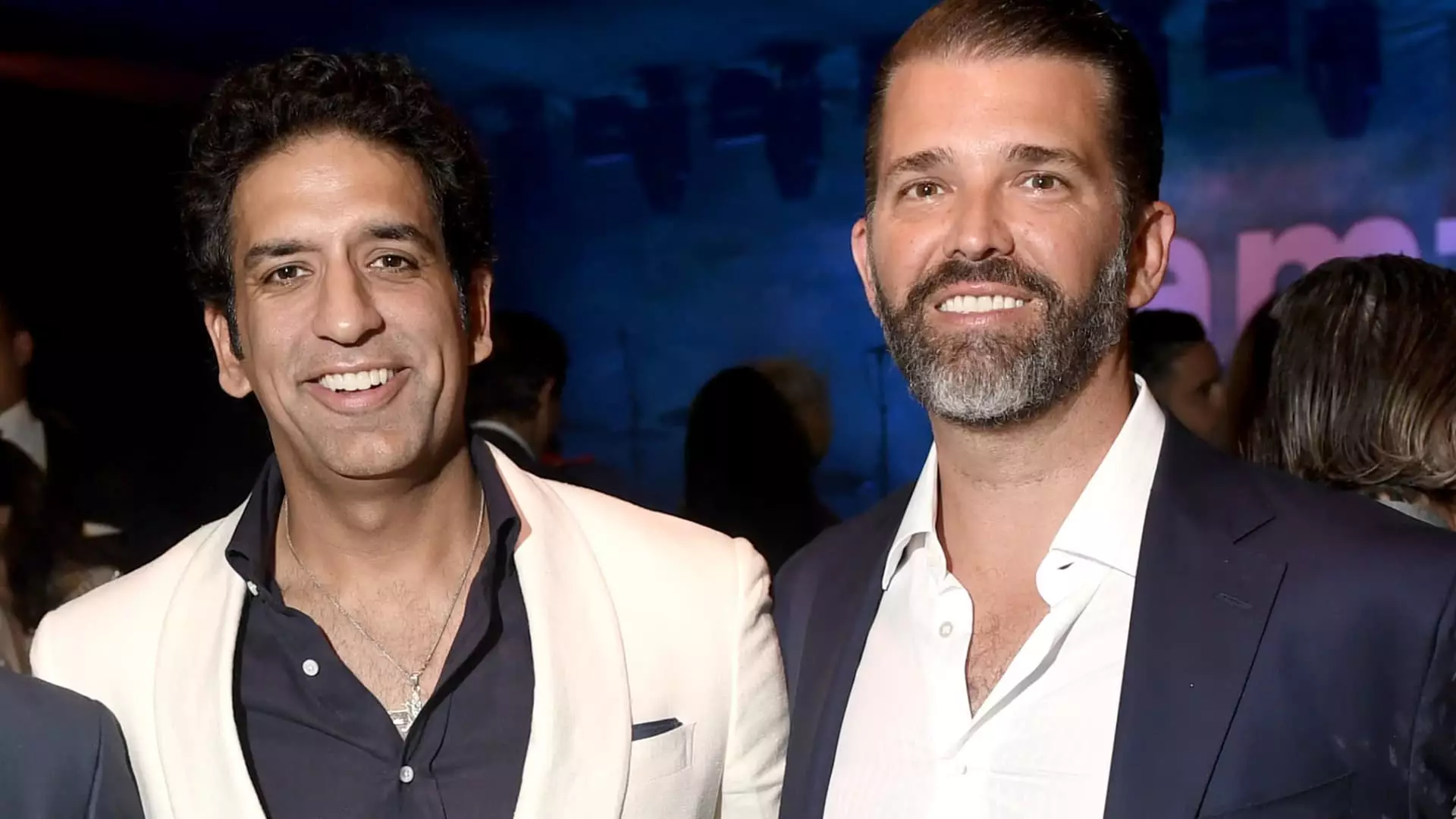The landscape of social networking in Washington, D.C. has taken a sharp turn toward the elite with the inception of Executive Branch, a private membership club co-founded by Donald Trump Jr. Charging a staggering $500,000 for entry, this establishment symbolizes not only an exclusive social scene but also a profound shift in the convergence of wealth, politics, and access. With a waiting list already forming, Executive Branch has positioned itself as a top-tier destination for the affluent and powerful. Yet, this exclusivity raises critical questions about the implications of creating a world where membership fees replace democratic accessibility.
Founded alongside significant figures in the investment realm—including Omeed Malik and Christopher Buskirk—the club promises a space where the wealthiest and most influential can convene. The heavy financial barrier for entry excludes all but a chosen few from its inner workings, effectively creating a faux-aristocracy fueled by privilege. As society strives for inclusivity, clubs like Executive Branch embody precisely the opposition—restrictive enclaves that breed inequity under the guise of exclusivity.
A Glimpse Into Power and Privilege
The launch party for Executive Branch was attended by a formidable lineup of Trump administration officials and top-tier CEOs, encapsulating the club’s intent to meld business acumen with political insight. Figures like Marco Rubio and Tulsi Gabbard mingled with crypto investors and tech titans, highlighting a network that not only thrives on powerful connections but also reflects a troubling intertwining of governmental functionality and private interests. It is hard to overlook the implications when high-ranking officials engage with business leaders in a space that fosters secrecy away from constituents.
This network of power can quickly devolve into a breeding ground for unethical alliances, stepping beyond the bounds of democratic engagement. The inclusion of controversial figures in politics might evoke a sense of nostalgia for the past—but it also reinvigorates debates about transparency and access. With the Trump Hotel’s history serving as a cautionary tale, one can only wonder if Executive Branch will someday find itself under similar scrutiny for catering to the highest bidder rather than upholding the democratic values it ostensibly represents.
The Echoes of Preceding Clubs
As it stands, Executive Branch is not an outlier but rather a continuation of a growing trend of upscale private membership clubs sprouting like weeds in major urban areas since the pandemic. The exclusivity of such clubs—including New York City’s Aman Club, which charges a hefty $200,000—highlights a sad realization: the rising gatekeeping that is becoming synonymous with elite connections. By elevating dues to levels that most citizens couldn’t even contemplate, the message is clear: only a select few are deemed worthy of such indulgence.
The unsettling reality is that, as Executive Branch applies intense vetting and approval processes to its potential members, it explicitly draws a line in the sand of who gets to belong—and who is excluded. When admissions are predicated on financial means rather than societal contributions or democratic engagement, we risk reinforcing elitism that aids the powerful in circumventing public accountability. The vocal skepticism of media or lobbyists joining the club speaks volumes to a preference for maintaining a self-sustaining echo chamber over fostering a diverse and representative community.
The Guarded Gates of Democracy
The chilling audacity of Executive Branch embodies an unsettling trend in our political and social fabric—a fabric that is fraying under the weight of wealth and privilege. While the 500,000-dollar membership fee certainly showcases opulence, it simultaneously serves as a warning sign: that the scales of influence and power are tipping ever so precariously.
What does it say about our society when the line between political engagement and private influence blurs under a veil of exclusivity? As future discussions of power dynamics unfold within the plush confines of clubs like Executive Branch, one can only hope that conversations about equity, representation, and true democratic engagement remain at the forefront. For it is not mere socializing that will determine the future of our democracy, but a commitment to dismantling the very barriers that clubs like Executive Branch so brazenly erect.


Leave a Reply